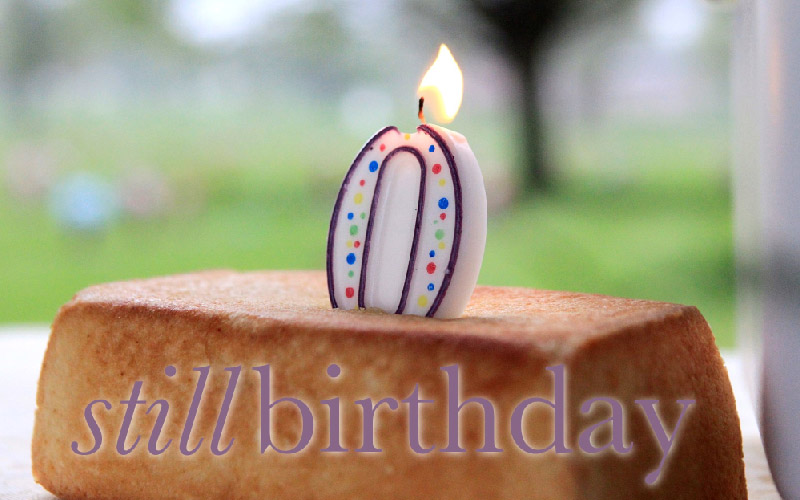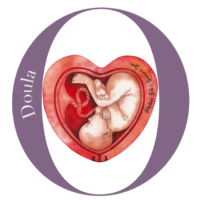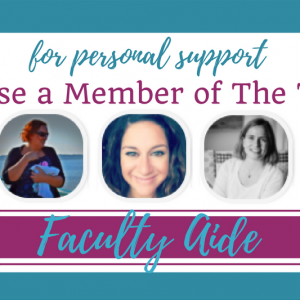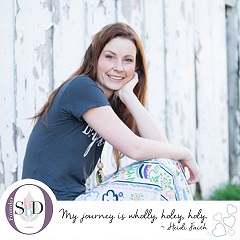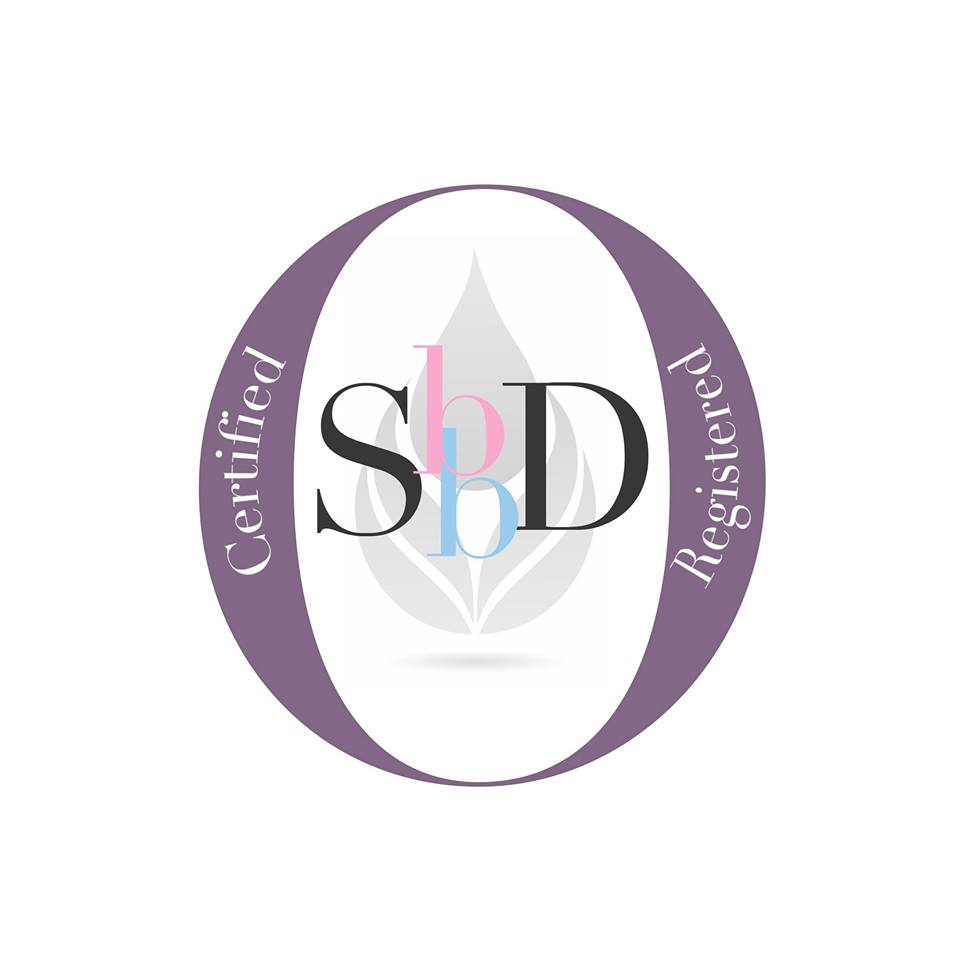What is a pregnancy loss?
“Miscarriages are labor, miscarriages are birth. To consider them less dishonors the woman whose womb has held life, however briefly.”
~Kathryn Miller Ridiman, Midwifery Today 1997
The actual loss that a family experiences when it is called a pregnancy loss, even in the event of a very early miscarriage, may be considered to them to be the life of the anticipated and likely hoped for child.
When you consider that many mothers experiencing even a very early miscarriage consider it to be the death of a child (regardless of kind of miscarriage, and regardless of political views or religious beliefs), it certainly seems much more staggering, sobering, and even dare shall I say important than saying
“I had a miscarriage.”
After a woman takes a pregnancy test and discovers that she is pregnant – nay, even before this, if she is intentionally trying to conceive – she surrenders herself to the role of mother.
She changes the way she eats, the way she views her world, the way she views herself.
She plans and prepares for her child.
A child, who will reflect her in many ways. A child who will carry on her husband’s last name. A child who will bring joy to the family – who will continue the family.
This, and more, is not just lost, but taken, when she has a miscarriage. It is not by her choice. And nobody prepares her for it.
After she hears the news that her baby is dead or is going to die, she is thrust into an isolating world where no resources are available. Her pregnancy books, classes and Facebook pregnancy pages don’t have information for her. Her doctor is limited in the things he can say.
Nobody talked about it, because nobody wanted to scare her –
– but, in the end, nobody prepared her, either.
Instead of information, resources and support, she is given platitudes, speculation, and abandonment.
She enters into a state of grief, likely compounded by postpartum depression, and nobody around her knows how to support her.
To change this, I asked a couple of pregnancy and birth professionals and advocates who have shared about pregnancy loss with their communities of readers to help me in finding ways for more professionals and advocates to open the door to discussing this extremely important topic.
As a pregnancy/birth professional/advocate, I encourage you to take the time to read what these amazing professionals have to say to you about how to approach the subject of loss and why it is so important that you do.
Please, also visit our Tips to Talking About It, so that you can learn how to open up this extremely important dialogue with your readers – the mothers who need this information.
I sought out hundreds of professionals and advocates, but only a small handful had replied back that they had ever discussed loss before. I asked them the following questions:
- What role do you have in pregnancy/birth information (a little intro)?
- How did you first broach the subject of pregnancy loss with your readers/community?
- What made you feel it was important?
- Was there anything that prevented you from sharing about it sooner? What was it?
- Did these fears or concerns present themselves after you did share about the subject?
- What unexpected problems did you find after you had broached the subject?
- Did it prove to be beneficial overall to discuss pregnancy/infant loss with your readers/community?
- Since sharing, have you discovered that there are topics/angles within the subject of pregnancy/infant loss that you feel unable to discuss (perhaps too graphic, related to birth choices involved in the loss, feel too uninformed about, too personal for yourself or possibly readers)?
Donna replied:
“I mainly run the Volusia County Birth Network and teach women and men about how a womans body works. To open up the subject of loss, I just put it in my bio on my website and put miscarriage info and links on my website. I shared a lot on my Facebook page and online forums. I felt it was important to share, becuase I had suffered loss and knew of other women who suffered loss and it seemed to be a subject people didn’t talk about – and I wanted to get it out in the open. Lack of knowing how and where to share prevented me from discussing the topic sooner, but once I shared, I didn’t find any unexpected problems and there have been no angles or topics within pregnancy loss that I have felt unable to discuss. It proved beneficial to share, because then I didn’t feel so alone in my loss and grief.”
Pamela Black replied:
I am a labor and birth doula, and a private birth educator (aspiring to do groups) in Denver. I began broaching the subject of loss by posting links to my Facebook page (which has a very small audience) and I’ve engaged in conversation with a “few” clients. I find the subject is a tough one. Most are very uncomfortable talking about death when they are focused on birth. One dad recently slammed his hand on the table when I brought it up and said “we need to move on.” I discovered during their very long +30 hour labor at a hospital that ended in a Cesarean birth that he had a grandmother die due to anesthesia for surgery. He was totally freaked. My biggest reason for discussing pregnancy loss is a desire for others to know there are resources and options available if they have the need. I have found that couching it with “This most likely will not apply to you but you may find yourself one day able to take this information and be able to help a family member, a neighbor or a friend with these resources and encouragement.” That usually helps them relax. I also talk about nilmdts in addition to stillbirthday. A little personal history: My first exposure to death was my 53 year old grandmother very unexpectedly died and I was devastated – due to family circumstances she was the one person I had bonded with the most as an infant. Then I had a miscarriage in 1974 and in 1976 had a 17 year old brother killed in a motorcycle accident. His death devastated my mother’s life and therefore has impacted the rest of the family. Since then I have had many relatives, friends, co-workers, etc. die. As far as my own experience with miscarriage I openly grieved the loss in 2005 when through an “honoring life” ceremony I named him, acknowledged the profound impact his life had had on me over the years and received a “Life Certificate” that to this day means a lot to me. All that to say, I feel familiar with death and its seeming finality now escapes me. Where there was once devastation and confusion I can only find in me peace and assurance that everything is just as it’s supposed to be. I’ve learned that reality is kinder than my imagination and I know God to be completely in control and deeply caring. I can only find in me acceptance and a surrender to a bigger picture that I believe will someday be revealed and perfectly understandable. Till then I don’t need to know why, I trust. I have been a doula for 4 years and at a birth with fetal demise once. I sat, I listened, I cried, I hugged, I held her baby, I encouraged, I prayed … That is all I can do and because of God’s amazing grace I feel honored to have played that small role in her life and in the life of the little one. I don’t presume it was bigger than or more meaningful than what friends and family or even hospital staff may have done. I do think that I am doing my part and that is quite enough. I was also honored to be a birth with a couple who had had one miscarriage and one stillborn prior to. There was a silence when the baby was born and she didn’t cry right away while the doctor was taking a little longer than mom was comfortable with and mom anxiously asked “Is she alive?” and at just that moment she cried and both parents exclaimed (and I cry at the memory) “She’s alive, she’s alive!” They now have three children.
Dr. Pauline Dillard continued:
“I am the executive director of the Dunamas Center where we do premarital and marriage counseling as well as childbirth education that is Christ centered, heart connecting and marriage focused. I was a birth educator and childbirth assistant for 12 years before going to graduate school in psychology. Currently my counseling work includes working with those who have had traumatic birth experiences and pregnancy loss. The main place we discuss pregnancy loss is our Choices for a Discerning Childbirth, when we discuss life issues that affect how people approach birth. However, I am currently getting more referrals from birth professionals and other counselors with regard to pregnancy loss and trauma, and will be doing more writing on the topic in the future. Pregnancy and birth in all forms and outcomes impacts who we are as women, wives and moms. It is a fundamental core part of who we are. I have also, always comfortable being with those in loss and trauma. I began with a particular interest in how pregnancy loss impacts the way couples would approach subsequent pregnancies and birth plans, and I wanted to help them to be confident and open to what God might have for them, and not be caught up in fear and pain when it came to future pregnancies and birth. I never faced any problems to discussing pregnancy loss. Many women are relieved to have someone to talk to who accepts their depth of loss and grief, and helps them walk through their pain and regain their footing.In fact, most of my counseling clients are relieved that I have background in natural birth and can ask them about the birth process (if it was a stillbirth), and affirm their choices, and can discuss pregnancy A & P as it might be related to a pregnancy loss. I am also able to help them with what questions they might want to explore with a care provider in the future, or if they still have questions about what happened that they may not have thought of. I am also quite open about anything they may want to talk about and can ask them hard questions without making them feel judged or put down. I don’t have any current material on our web site specifically about pregnancy loss, but we will be adding a list of books and web sites that might be helpful. I will also be adding the topic to things I cover in counseling, and how we work with those who have had a pregnancy loss, or infertility issues, when it comes to subsequent pregnancies.”
Ilise noted:
“I run a small blog and a couple of pages and a group on Facebook that are about pregnancy and birth. I can’t remember when I posted for the first time about pregnancy loss, but it would have been within the last six months. Many women suffer from the loss of babies during pregnancy and birth and I’ve known friends and family that have, too. I always feel so helpless when wanting to help them, but I know they feel pain that they don’t always share and they don’t always have many places to turn for understanding.I don’t think anything really made me question sharing. Even though I know some pregnant women are hesitant to read about loss while expecting, I still felt it was important to share to give them and others the chance to decide that for themselves.I don’t really think anyone has vocally been upset by my sharing on loss. Someone once said that they wouldn’t read it right then because they were expecting, but they would keep it in mind for later. Those who have commented, have said that it is helpful and healing to have a place of understanding and information.“
Jen (vbacfacts.com) replied:
“I am a mom who manages a website on birth options after a cesarean where I share interesting or hard to find information. When I experienced a miscarriage at 7 weeks I wrote about it. 18 months later, I decided to share it via the website. Sometimes people can find comfort knowing that someone else understands their pain. Knowing friends who had also miscarried was helpful to me. I decided to share my story publicly so that other women might “know” someone who had experienced it. And for those that had not experienced miscarriage, for them to understand that women might still be in mourning months later even as they mother their children. The pain just doesn’t go away when the bleeding stops. It proved to be beneficial to share. People don’t often leave comments at my site, but the comments left when I shared about loss were very touching. I will include just a few that were shared:”
“Thanks for sharing. I’ve had 3 m/c and have 2 live children. It doesn’t get easier, each loss is unique and painful. You’re so right about how others act as if if never happened…maybe stories like this will start to change that.”
“I have also chronicled my miscarriage experiences at my blog. And I talk very openly about my miscarriages and what my current pregnancy means to me. I try and present it in a way that people won’t really feel sorry for me. I’m pretty open about it with the college students. They need to know that it is likely that they or someone they care about will experience miscarriage.”
“Funny reading this from you this week. I miscarried about a month ago, a close friend miscarried about 2 weeks ago and another dear friend lost her little one this week. Its been quite an emotional rollarcoaster…trying to move through fresh grief and having the scab ripped open over and over again while trying to be a shoulder to cry on for others. Why is it so hard to talk about in our society? Why is it something we don’t talk about, we’re supposed to just forget it, accept it was fate and that’s all. Thank you for reminding me that I- and many other women- aren’t alone.“
Please, also visit our Tips to Talking About It article that serves to work in conjunction with this one, so that you can learn how to open up this extremely important dialogue with your readers – the mothers who need this information.
